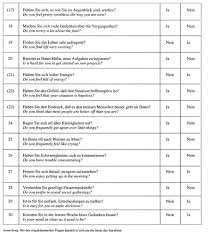
Introduction
The Yesavage Scale, formally known as the Geriatric Depression Scale (GDS), plays a critical role in the assessment of depression among the elderly population. As aging becomes a more significant aspect of our society, understanding and addressing mental health issues such as depression in seniors is essential. The ramifications of untreated depression in older adults can be severe, affecting their quality of life, overall health, and even cognitive function, making awareness and effective screening vital for caregivers and healthcare professionals.
What is the Yesavage Scale?
Developed in 1983 by Dr. Jerome Yesavage and his colleagues, the scale was designed specifically to identify depression in older adults. The original version consists of 30 questions, but shorter versions, such as the 15-item scale, have also been developed for quicker assessments. The Yesavage Scale asks simple yes/no questions that gauge various feelings and behaviors associated with depression.
Importance of the Yesavage Scale
The prevalence of depression among the elderly is alarming, with estimates ranging from 1% to 5% for community-dwelling seniors and increasing to 10% to 20% in primary care settings. The Yesavage Scale is particularly beneficial for identifying depression in those who may have difficulty expressing their emotions verbally, making it an essential tool for various healthcare settings, including long-term care facilities and hospitals.
Recent Insights and Developments
Recent studies have indicated the effectiveness of the Yesavage Scale in predictive analysis, helping health professionals better understand the state of mental health of older patients. During the COVID-19 pandemic, mental health issues became exacerbated in the elderly due to isolation and health concerns. The use of the Yesavage Scale has gained even more attention, providing a structured method to assess mental well-being.
Conclusion
As Canada and much of the world continue to grapple with an aging population, tools like the Yesavage Scale will become increasingly significant. The early identification and proper management of depression in older adults are crucial steps toward promoting healthier aging. For caregivers and healthcare professionals, familiarizing themselves with the Yesavage Scale not only enhances their ability to support seniors but also contributes to improved overall health outcomes within this vulnerable demographic. Predictive analytics from the scale may lead to targeted interventions, ultimately enhancing the quality of life for many elderly individuals.



